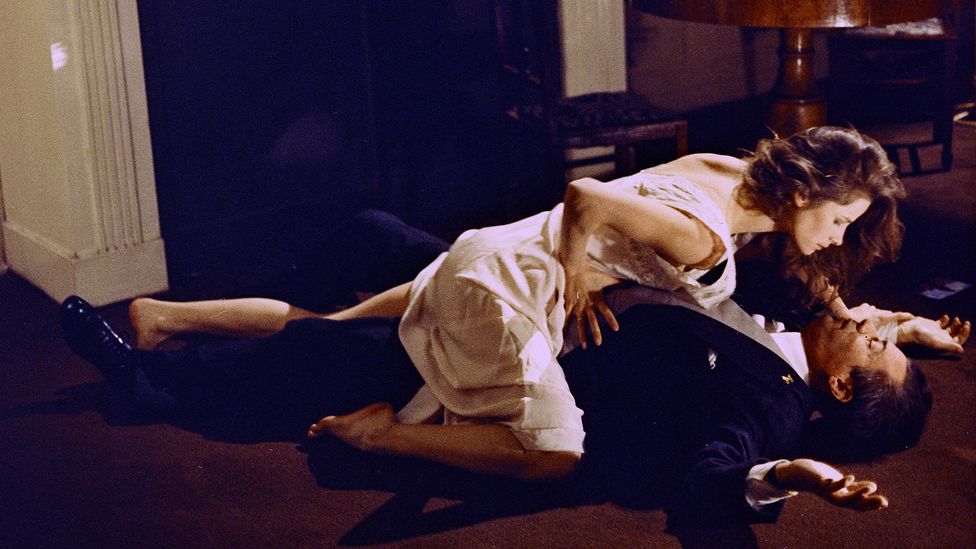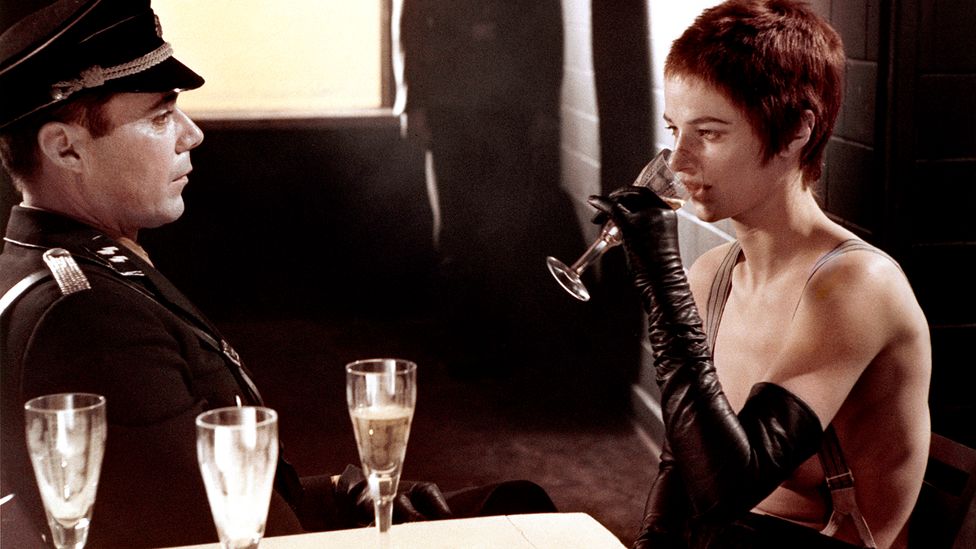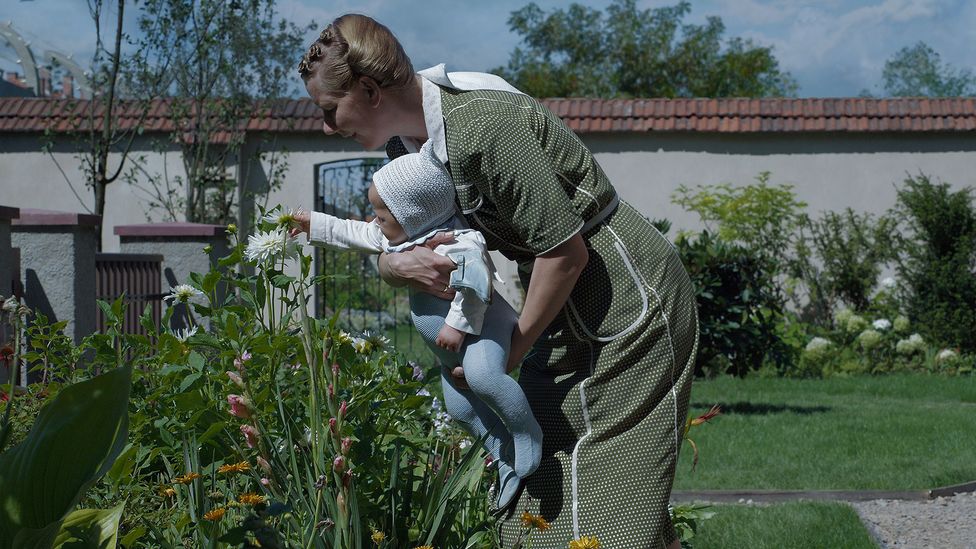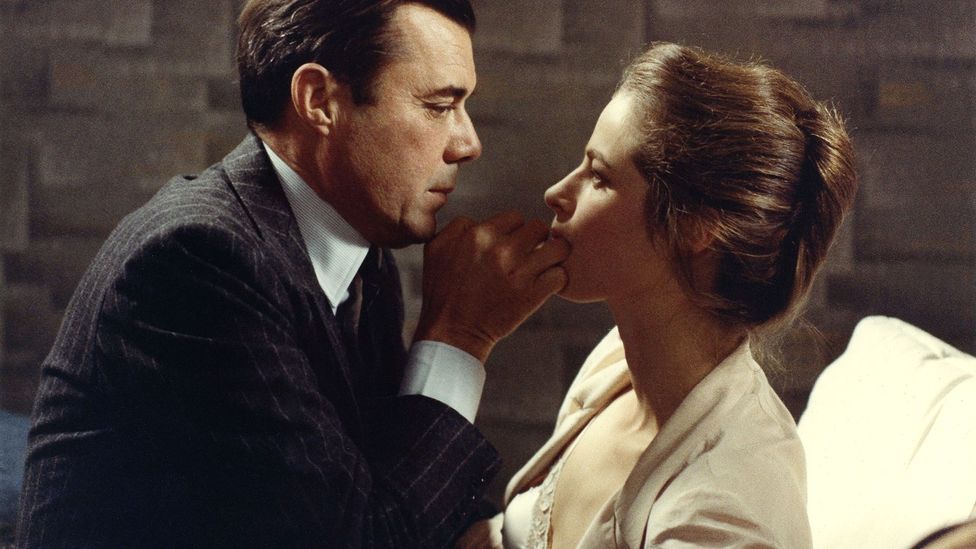"To write a poem after Auschwitz is barbaric," wrote the German theorist Theodor Adorno, suggesting, in his 1949 essay Cultural Criticism and Society, that artistic expression had been rendered inadequate as a tool to understand reality after the Holocaust. In her 1974 film The Night Porter, Italian director Liliana Cavani challenged this theory, taking it to its logical extreme. She used a concentration camp as the setting to explore a crazed sexual bond between an adolescent prisoner and an SS commandant, and how, years later, this psychological poison has pervaded their souls.
Amid the furore after its release – which included intensely negative reviews from both sides of the Atlantic, and an attempted ban by the Italian ratings board – with typical nonchalance, Cavani told The New York Times: "This is nothing compared to the numberless couples who tear each other apart psychologically."
Half a century on, however, does The Night Porter still seem like a provocation that plumbs the depths of bad taste? With the film's recent restoration and re-releases, as well as renewed conversations around cinematic depictions of the Holocaust, many have revisited the film and remain unimpressed by its content. Others are perhaps seeing the film more as Liliana Cavani originally intended: as an artistic reflection of how sexual obsession – in all its often-misplaced fervour – can be fascistic in its tunnel-visioned ferocity. Cavani herself put it more simply: "love comes always with a price to pay".
The Night Porter is set in Vienna in 1957, where a former Nazi commandant, Max (Dirk Bogarde), works in an upmarket hotel. There, he clashes with former SS colleagues who are determined to purge themselves of any shame about their roles in the Final Solution and eliminate any surviving witnesses. Max, however, would rather forget his past and move on, living his life quietly, he says, "as a church mouse". His careful world is upended when Lucia (Charlotte Rampling), now married to an American composer, walks into his hotel lobby – the very woman he sexually abused while she was a prisoner in his camp, and with whom he entered into a sadomasochistic relationship. Reunited once more, their twisted folie à deux resumes and a fervent debasement begins – now, on both sides.

The film sparked a furore, which included intensely negative reviews from both sides of the Atlantic, and even an attempted ban by the Italian ratings board (Credit: Alamy)
As the daughter and granddaughter of committed anti-fascists, Cavani had spent the first portion of her career in the early 1960s creating documentaries about wartime fascism like History of the Third Reich (1962-1963) and Women of the Resistance (1965). During the making of the latter, one interviewee who was incarcerated in the Dachau concentration camp as a teenager confided that she kept returning there after the war. This idea of a prisoner returning to the scene of their torment fascinated Cavani, and the seed for The Night Porter was born.
Like Luchino Visconti's The Damned (1969) and Bernardo Bertolucci's The Conformist (1970), The Night Porter has a heightened visual style that depicts fascism as an unnatural and uncanny ideology where sexual immorality thrives. As Teresa De Santis wrote in her 1976 essay, Cavani's Night Porter: A Woman's Film, "highbrow critics [...] were quick to place Cavani's style in a smug fit between Visconti and Bertolucci, implying nothing but a competent imitation of her (male) masters". But Cavani took Visconti and Bertolucci's visual depictions of Nazism and aberrant sexuality further, with skin-crawling images: the stark sight of stripped bodies in prison camps; of sallow, almost blue faces that are gaunt with hunger; of abrupt sexual violence, in which it is implied that the victim is enjoying themselves.
These scenes are not attempts at realism, but knowingly contrived – Cavani intersperses them with scenes at an opera, both with the same harsh lighting, thick make-up and the impression of performance. As the titular night porter in hiding, Max is having to perform dual roles: as a debonair concierge, and as a participant in his SS friends' "mock trial," which is designed to purge him of Nazi remorse. The only way he can escape from his mounting inner turmoil, though, is to fully cave into a psychological nadir: by regressing into petulant games with Lucia. As they restart their affair, eventually locking themselves into a dank apartment where they slowly starve, it is clear that Lucia's return represents his unsurvivable levels of guilt.
Critical dismay was manipulated by the film's marketing department, which took snippets of these negative reviews and used them to promote the film
Unsurprisingly, the vast majority of reviews for The Night Porter – particularly in the US – were scathing. Roger Ebert dismissed it as being "as nasty as it is lubricious, a despicable attempt to titillate us by exploiting memories of persecution and suffering". Echoing this vitriol, The New York Times' Nora Sayres asked: "Is this slab of opulent claptrap worth any serious consideration?". Meanwhile in The New Yorker, Pauline Kael took the film as proof "that women can make junk just as well as men". This critical dismay was then manipulated by the film's marketing department, which took snippets of these negative reviews and used them to promote the film. "What a kinky turn on!" read one poster quote attributed to another New York Times writer, Vincent Canby, who – having used this line sarcastically – had in the same review called the film "a piece of junk".
More like this:
• The Russian box-office hit that beat the censors
• The perils of being the world's most beautiful film star
• 11 of the best films to watch in May
The film's most enduring and memorable scene has also done it no favours: the sight of Charlotte Rampling with shorn hair, in a peaked cap, over-the-elbow leather gloves and suspenders barely covering her breasts, performing an eroticised cabaret number for a group of SS officers at the camp. This look became a defining image of the "Nazi Chic" phenomenon, appropriated in culture and fashion among punk acts and beyond as an easy way to cause a stir. Reacting to the creeping sexualisation of fascism in the media in 1975, Susan Sontag wrote: "Why the SS? Because the SS was the ideal incarnation of fascism's overt assertion of the righteousness of violence [...] they dramatised it by linking themselves to certain aesthetic standards. The SS was designed as an elite military community that would be not only supremely violent but also supremely beautiful."
'Nazisploitation' accusationsFollowing accusations of sexualising Nazism and the manipulative marketing campaign, many dubbed The Night Porter as "Nazisploitation". Nazisploitation was a subgenre of exploitation films – the genre covers a wide gamut of films that are deliberately lurid, shocking and often low budget, with other subgenres including Blaxploitation or Ozsploitation. In Nazisploitation films, oftentimes they depicted Nazis committing sex crimes; famous examples include Ilsa, She Wolf of the SS (1975), Salon Kitty (1976) and Gestapo's Last Orgy (1977). The Night Porter is often grouped together with them, despite bearing little resemblance to these knowingly schlocky and quasi-pornographic works. For many, the depiction of eroticism and Nazism side-by-side was enough to remove any artistic merit. Seemingly agreeing, Linda Mizejewski argued in her 1992 book Fascism, Female Spectacle and the Makings of Sally Bowles that "antifascist productions end up duplicating the fascist politics they strive to condemn, reproducing the homophobia, misogyny, fascination for spectacle".
The Night Porter's strength comes from probing an aspect of Nazi thinking which few filmmakers would dare to investigate – Lilian Crawford
However, there are a number of women who have recently come out in favour of The Night Porter's studied look at sexual frenzy. While it was previously difficult to get hold of a copy to watch, a new generation of critics and cinephiles have been able to see it more easily, thanks to a 2K remaster and re-release by the Criterion Collection in 2014 and a 4K Ultra-HD 2020 release by Cult Films. In 2014, Gaetana Marrone praised The Night Porter as being "concerned with the thematisation of compulsive, repetitive desire and pleasure that exceed the logic of history". For Marrone, the film is not designed to titillate the viewer; rather, "games of erotic enslavement and domination reflect the paradoxical historical situation in which [Max and Lucia] reenact their love".
How The Night Porter is seen todayAnd while The Night Porter focuses on an inescapably controversial topic, "the film's main provocation is to consider the peculiarities of trauma and how they manifest, particularly within some sadomasochistic sexual dynamics," film and culture writer Lillian Crawford tells the BBC. "It is a nauseating melting pot of schadenfreude, Stockholm syndrome, Lolita-like obsession, and Nazi fetishism that threatens to tear Max and Lucia apart." According to Crawford, it is the fact that Cavani dares to probe at these ideas without a care for good taste that lies at the heart of its controversy. "The Night Porter proves that Nazi exploitation and sexual taboo is essential to understanding the manifestation of fascistic ideology, and for the film to have sustained that complexity into the present is in itself a form of success," she says.
Controversies nourish how one can discuss a film, which encourages me to think of it as a success – Anna Maria Pasetti
Anna Maria Pasetti, an Italian film festival programmer and member of the International Federation of Film Critics, tells the BBC that while "there is no pleasure in watching it," it is nonetheless a story that "needed a lot of courage to be written, directed and eventually acted, especially in a country – Italy – where the shadow of fascism was still so poignant. Not least considering that the director is a woman." Beyond mere bravery, though, Pasetti agrees with Crawford, that "controversies nourish how one can discuss a film, which encourages me to think of it as a success".

Charlotte Rampling's look became a defining image of the "Nazi Chic" phenomenon, appropriated by punk acts and beyond as an easy way to cause a stir (Credit: Getty Images)
Their fellow critics seem to agree; in a 2019 poll run by BBC Culture to find the 100 greatest films directed by women, The Night Porter landed in a respectable 32nd position. Jane Campion, herself known for knotty and complex examinations of the intersection of danger and desire, and whose film The Piano topped the poll, described The Night Porter in 2008 as a film of "extraordinary psychological perversity and truth [...] that persuades me that our lives are not logical but poetic and allegorical."
The Holocaust in cinemaFifty years on, and with distance from the Nazisploitation craze that quickly dissipated after the 1970s, there is a larger canon of Holocaust cinema with which to compare The Night Porter. While more recent reviews of the film remain mixed, they generally seem less shocked by the content than unimpressed with other aspects, such as improbable plot developments or pacing issues. In a tepid 2020 review, The Guardian's film critic Peter Bradshaw called it "contrived and unconvincing", though he acknowledged that it "does at least jolt us towards an acknowledgment of pure evil". Similarly, Kim Newman, in Empire, described this "once controversial" film as suffering from "a storyline as rambling and illogical as the behaviour of its peculiar characters", ultimately being "too protracted and pompous".
Looking at the canon as a whole, too, one might be hard stretched to find a Holocaust film that doesn't suffer from controversy. Writing in The Guardian, Jonathan Freedland argues that the Holocaust appeals to filmmakers as it "seems to offer a shortcut to moral gravity, emotional depth and the highest possible stakes", but that Holocaust films are ultimately dishonest, because "whatever can be shown on screen will always be less hellish than the reality". There is often debate about how best to portray the Holocaust in cinema, or whether it is even necessary at all; approaches vary, from in-your-face endeavours like The Grey Zone (2001) to tear-jerking affairs like The Boy in the Striped Pyjamas (2008) and more oblique, art-house successes like The Zone of Interest (2023). Depending on who you ask, these films are always either too graphic, too sentimental, too cutesy, too bleak, or perhaps not bleak enough. According to Bradshaw, "however bizarre, I think [The Night Porter] is far superior to sugary, sentimental and illiterate pictures such as Life Is Beautiful or Jojo Rabbit".

Holocaust films vary, from tear-jerking affairs like The Boy in the Striped Pyjamas to more oblique, art-house successes like The Zone of Interest (Credit: A24)
For Crawford, "It is unconscionable to make cinematic entertainment out of Holocaustic imagery, especially for films like Schindler's List or Jojo Rabbit. But The Night Porter is not attempting to 'recreate' the Holocaust; it is, like The Zone of Interest, attempting to penetrate a more psychological, sexual component of Nazism and genocidal thought which requires a more abstract framing of the Holocaust. Indeed, a 'respectful' Holocaust film is one like Claude Lanzmann's Shoah, which does not attempt to show or reconstruct what happened at all. The Night Porter is by no means a 'respectful' or indeed a 'respectable' film, but its strength comes from probing an aspect of Nazi thinking which few filmmakers would dare to investigate. It is not comfortable or easy, and that is surely an essential quality of a Holocaust film."
Amidst this contemporary cultural conversation, The Night Porter may to some feel like less of a controversial work than others. For those that see its conflation of lust and fascist evil as repugnant, there are others who view it as an astute observation of the psychological violence that occurs in an environment, like a concentration camp, where there is total absence of reason. For Pasetti, "nothing more than the pursuit of the 'real truth' should be the basis upon which to judge a good or respectful feature film about the Holocaust". If this film's strange vision contains Cavani's truth, then, perhaps, viewers' continued unease can only be expected.
--
If you liked this story, sign up for The Essential List newsletter – a handpicked selection of features, videos and can't-miss news, delivered to your inbox twice a week.
For more Culture stories from the BBC, follow us on Facebook, X and Instagram.
